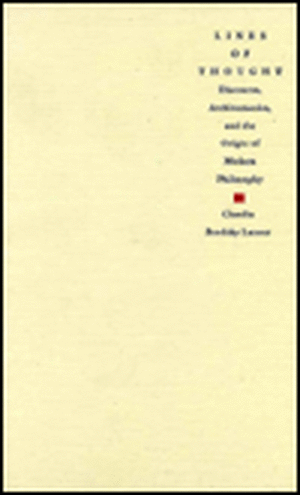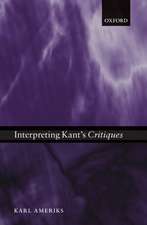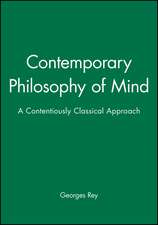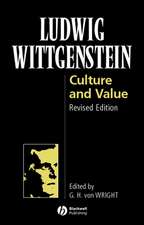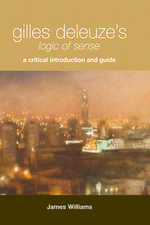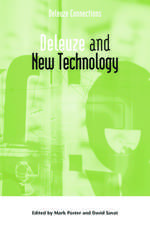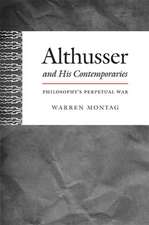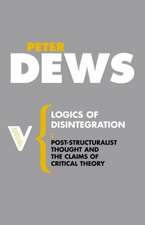Lines of Thought – Discourse, Architectonics, and the Origin of Modern Philosophy
Autor Claudia Brodsky Lacouren Limba Engleză Hardback – 21 apr 1996
While Cartesianism has long served as a synonym for rationalism, the contents of Descartes's method and "cogito" have remained infamously resistant to rational analysis. Similarly, although modern phenomenological analyses descend from Descartes's notion of intuition, the "things" Cartesian intuitions represent bear no resemblance to phenomena. By returning to what Descartes calls the construction of his "foundation" in the "Discours," Brodsky Lacour identifies the conceptual problems at the root of Descartes's literary and aesthetic theory as well as epistemology. If, for Descartes, linear extension and "I" are the only "things" we can know exist, the Cartesian subject of thought, she shows, derives first from the intersection of discourse and drawing, representation and matter. The crux of that intersection, Brodsky Lacour concludes, is and must be the "cogito," Descartes's theoretical extension of thinking into material being. Describable in accordance with the "Geometrie" as a freely constructed line of thought, the "cogito," she argues, extends historically to link philosophy with theories of discursive representation and graphic delineation after Descartes. In conclusion, Brodsky Lacour analyzes such a link in the writings of Claude Perrault, the architectural theorist whose reflections on beauty helped shape the seventeenth-century dispute between "the ancients and the moderns."
Part of a growing body of literary and interdisciplinary considerations of philosophical texts, "Lines of Thought" will appeal to theorists and historians of literature, architecture, art, and philosophy, and those concerned with the origin and identity of the modern.
| Toate formatele și edițiile | Preț | Express |
|---|---|---|
| Paperback (1) | 186.65 lei 6-8 săpt. | |
| MD – Duke University Press – 21 apr 1996 | 186.65 lei 6-8 săpt. | |
| Hardback (1) | 423.28 lei 3-5 săpt. | +27.96 lei 6-10 zile |
| MD – Duke University Press – 21 apr 1996 | 423.28 lei 3-5 săpt. | +27.96 lei 6-10 zile |
Preț: 423.28 lei
Nou
Puncte Express: 635
Preț estimativ în valută:
81.02€ • 85.12$ • 68.09£
81.02€ • 85.12$ • 68.09£
Carte disponibilă
Livrare economică 19 februarie-05 martie
Livrare express 04-08 februarie pentru 37.95 lei
Preluare comenzi: 021 569.72.76
Specificații
ISBN-13: 9780822317777
ISBN-10: 082231777X
Pagini: 176
Dimensiuni: 150 x 250 x 15 mm
Greutate: 0.52 kg
Ediția:New.
Editura: MD – Duke University Press
ISBN-10: 082231777X
Pagini: 176
Dimensiuni: 150 x 250 x 15 mm
Greutate: 0.52 kg
Ediția:New.
Editura: MD – Duke University Press
Notă biografică
Textul de pe ultima copertă
"An excellent, highly disciplined reading; a truly interdisciplinary achievement. One of the most striking qualities of this book is the way in which Brodsky Lacour opens up broader historical, philosophical, and literary perspectives, pertaining particularly to present discussions of Modernity and deconstruction, by strictly pursuing her rigorous reading of Descartes's and Perrault's texts. The basis for such a mediation is the author's excellent literary analyses and her impressive understanding of philosophical and mathematical issues. In thinking through the figures of line and architecture in and as thought and discourse, she unfolds a certain construction of modern subjectivity and contemporary theoretical problems in a highly illuminating way."--Rainer Nagele, The Johns Hopkins University
Cuprins
Acknowledgments viii
Notes on the Text ix
Preface: What Is ModerN? 1
Part 1. Descartes' "Design"
1. Triaté or Discours de la méethode 11
2. Autobiographical Discourse: "Fable" as "Tableau" 18
3. The "Discourse" of Thinking: Architectural Design 32
4. The Things a Thinking Thing Thinks 38
Part 2. The Discourse of Method
5. Letters and Lines: Algebra and Geometry in Descartes' Géométrie 49
6. Writing and Intuition 68
Part 3. Thinking As Line
7. The Cogito and Architectural Form 87
8. Staircase as Labyrinth: Eudoxe on Method 111
9. Postscript: Architectural Theory after Descartes 117
Epilogue: The Line between Aesthetics and Knowledge 141
Bibliography 151
Index 161
Notes on the Text ix
Preface: What Is ModerN? 1
Part 1. Descartes' "Design"
1. Triaté or Discours de la méethode 11
2. Autobiographical Discourse: "Fable" as "Tableau" 18
3. The "Discourse" of Thinking: Architectural Design 32
4. The Things a Thinking Thing Thinks 38
Part 2. The Discourse of Method
5. Letters and Lines: Algebra and Geometry in Descartes' Géométrie 49
6. Writing and Intuition 68
Part 3. Thinking As Line
7. The Cogito and Architectural Form 87
8. Staircase as Labyrinth: Eudoxe on Method 111
9. Postscript: Architectural Theory after Descartes 117
Epilogue: The Line between Aesthetics and Knowledge 141
Bibliography 151
Index 161
